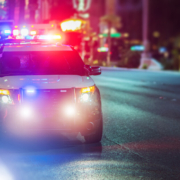What rights do minors have during police questioning?
When people think of children who are being questioned by police officers, they might not realize that there are some very specific rights that children have. In fact, minors might actually have more protections when dealing with the police than adults have.
Do police have to tell minors their rights?
Yes, police officers have to tell minors their rights. In some cases, the minors might need to be told their rights in situations that wouldn’t warrant those warnings for adults. The police officers have to take the minor’s age and the circumstances of the case into account when trying to decide if the minor should be read his or her Miranda rights.
Why do children get special considerations?
Children often accept the authority of police officers without much question. That means that they might not realize that they can get themselves into trouble by answering the police officer’s questions if they are being asked about a crime. Children aren’t simply little adults. The mental capacity of minors to understand the circumstances means that they must be given special considerations during questioning.
Is there any legal guidance about minor’s rights?
A decision by the Supreme Court noted that police officers have to consider a person’s age when they are deciding if they should read the Miranda rights. This decision took in account the limited comprehension that some minors have when dealing with the authorities. In short, this decision means that police must carefully consider all aspects of the circumstances surrounding the questioning of the juvenile.
Any parents who feel their child was questioned by police without proper Miranda notifications should work to discover if that is the case. That might be one important factor when determining a defense strategy for the juvenile.
Source: FindLaw, “Police Questioning of Minors,” accessed July 22, 2015


